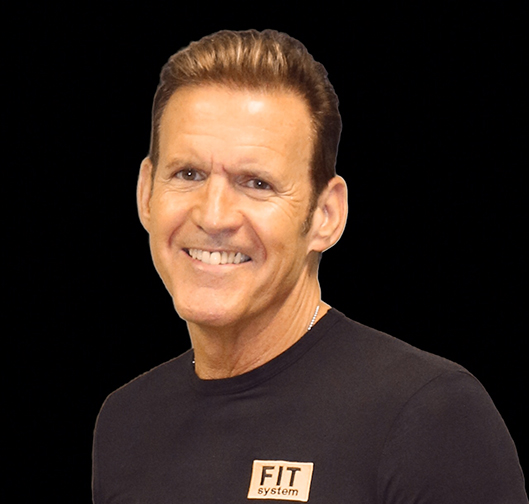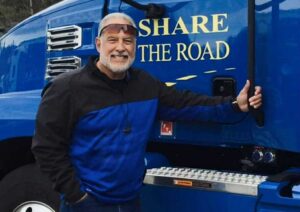If we treated our tickers as well as our trucks, not nearly as many truck drivers would have heart disease. Every year since 1963, the President of the United States has proclaimed February as American Heart Month. When you’re on the road, it’s not hard to spot the warning signs of heart disease in fellow drivers. The most visible, obesity, is just one of the problems. Smoking, drinking, lack of exercise and poor diets all combine to clog vessels and arteries (and we’re not talking about rush hour traffic here).
The road to a healthy heart begins with a simple question. What kind of fuel are you putting in your engine?
Your doctor or dietician can tell you what to eat, prescribe an exercise regimen, and help you stop smoking and drinking, but only you can make the choice each day to live a lifestyle leading to improved heart health.
For starters, a few simple tips and questions to ask yourself:
Eat Colors. You know these foods, assuming they don’t have “artificial colors” on their labels, have minerals and vitamins. But you may not realize eating a variety of fruits and vegetables can help control weight and lower your blood pressure.
Eat more fish. Add fish to your diet at least twice a week to boost your omega-3 fatty acids and help lower your risk of coronary artery disease.
Are you at risk? Heart disease is America’s No. 1 killer. If any of the following are part of your lifestyle, medical report, or in your family history, chances are you are at increased risk of heart disease: smoking, diabetes, high-cholesterol levels, high blood pressure, family history of heart attack, lack of exercise, stress and obesity.
Work in that work out. Regular exercise can help you maintain your weight and improve your blood pressure and blood sugar levels. Keeping active can lower your risk for many chronic diseases, type 2-diabetes, depression and cancer to name a few. Just because you can’t get to a gym doesn’t mean you can’t stay active. Walking, stretching, push-ups and sit-ups are just a few simple exercises you can perform almost anywhere.
What type of fuel are you burning? If you are overweight, eating protein-rich foods instead of carbohydrates can speed your metabolism. Studies show people burn fat more quickly after eating high-protein meals and reducing carbohydrates. You don’t drive your rig with its lights off at night; after all, you need to see the road ahead. Managing your health is similar. Be sure you can see what’s ahead on the road to health. It’s not always an open interstate. You will run into roadblocks. Prepare for them.
There are no big secrets to weight loss, and there are no ‘quick fixes’ or shortcuts. The steps to losing weight are straightforward and simple: eat less, exercise more and even better, do both!
Have you ever put cheap fuel in your truck? How’d that work out for you? The same applies to meals. The most common mistake people make when it comes to to eating is waiting too long between meals. When our energy levels drop, we instinctively reach for the closest thing available. For the trucking lifestyle, that typically means some sort of processed or fast food.
Plan ahead: When you’re on the go, pack nutritious snacks to keep your energy level stable. Then when you are ready to eat, make healthy choices.
Avoid simple carbs. Simple carbohydrates may leave a sweet taste in your mouth, but that’s where the fun ends. Simple carbs are already broken down to their basic form, meaning your body quickly converts them to sugar as they enter your blood stream. A spike in blood sugar releases insulin, a hormone helping your body to turn the sugar into energy for movement, growth, repair of damaged tissues and other needs. But this type of energy is not what our bodies need.
Fast-rising blood sugar that remains for extended periods of time, causes an increased workload on your pancreas. Likewise, elevated blood sugar won’t help if you’re trying to lose weight.
For you team drivers, it’s a proven fact that when one partner participates in a weight loss program, the other is more likely to eat fewer calories, too. Remember, you don’t drive your rig with its lights off at night; you need to see the road ahead. Use the same principle when managing your health. Be sure you have a clear view of what’s ahead on the road to health.
Bob Perry is a regular contributor to The Trucker. He has spent nearly the past four decades on a mission to educate professional drivers and share life-changing products and services to help them live healthier lives while on the road. Recognized throughout the transportation industry, from bus drivers to over-the-road professional drivers, Perry has played an important role in creating a paradigm shift helping regulatory agencies, private and public sector entities, and consumers understand the current health challenges of the professional driver. He has participated as a wellness advocate in several roundtable discussions, large audience groups and small forums as well as going “curbside” through a national truck stop tour.
Bob’s articles have been featured in The Trucker and a number of other national transportation industry publications and is the host of a weekly wellness call produced by Rolling Strong. Bob has been a regular guest on RedEye Radio and Land-Line Radio, and is often an invited guest on Sirius radio shows. He has been featured in the New York Times, Men’s Health Magazine, Drug Store News, American Road Magazine, WSJ, NPR, ABC National Radio, as well as hundreds of daily newspapers. He has appeared on television news shows across the nation, including a featured TV segment on ABC NightLine News.








